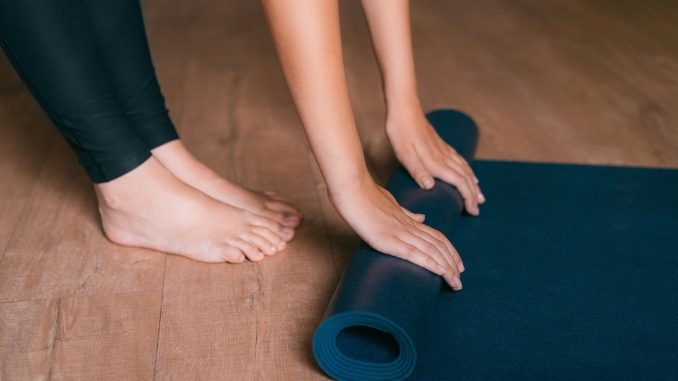Are you fed up with your snoring waking you up at night? You're not alone. Many people snore, affecting their sleep and health. Luckily, simple daily exercises to stop snoring, like tongue workouts and nasal breathing techniques, can quiet snoring quickly, improve your breathing, and enhance your sleep quality.
Why Do We Snore?
Snoring is a noise made during sleep. It occurs when air can't flow freely through the nose and mouth. This blockage makes tissues vibrate, creating a snoring sound [¹]. It usually happens while inhaling, but people with sleep apnea can snore when exhaling too, with a different sound.
Understanding the Causes of Snoring

Snoring is a noise made during sleep, occurring when air can't flow freely through the nose and mouth. This blockage makes tissues vibrate, creating a snoring sound. It usually happens while inhaling, but people with sleep apnea can snore when exhaling too, with a different sound.
Other factors can contribute to snoring, including:
- The shape of your mouth and throat can lead to snoring. A thick soft palate, big tonsils, a long uvula, or too much throat tissue can all narrow the airway and block airflow.
- Obstructive sleep apnea (OSA) [²] is a condition where the airway collapses repeatedly during sleep, causing sleep interruptions and sometimes low oxygen levels.
- As people get older, their throat narrows, and the muscles weaken, making snoring more likely.
- Being overweight can lead to extra throat tissue, which may narrow the airways and cause snoring.
- Sleeping on your back can make your tongue slide back, partially blocking the air in your throat.
- Drinking alcohol and taking some medications can relax the muscles in your throat, making you more likely to snore.
- Nasal issues like a constant stuffy nose or a crooked wall between your nostrils can lead to snoring.
The Impact of Snoring on Sleep Quality

Snoring is often seen as just a nuisance, but it really can harm sleep quality. It breaks up your sleep, keeps you from resting deeply, and may upset your partner, possibly hurting your relationship.
This can make you tired and cranky, and even increase your risk of serious health problems like high blood pressure and heart disease.
Improving how you deal with snoring can greatly enhance sleep for both you and your partner. Trying specific exercises like mouth movements, tongue stretches, and strengthening the soft palate can help.
These exercises work the tongue, upper airway, and muscles in the face and throat. They're also good for mild sleep apnea, helping you get better sleep and boost overall health.
The Health Risks Associated with Snoring

Snoring is more than annoying; it's a health hazard. It's often tied to heart disease, high blood pressure, and stroke due to night-time breathing problems. Snoring can indicate sleep apnea, where breathing stops and starts, causing fatigue, focus issues, and increased accident risk. If you suspect sleep apnea, see a doctor.
To combat snoring, specific mouth and throat exercises can help. These include tongue stretches, soft palate exercises, and overall mouth exercises to strengthen the area. Regular practice can improve mild sleep apnea symptoms and enhance sleep quality.
Tongue and Throat Exercises
Here are some exercises that target the tongue and throat muscles:
1. Tongue Slide
Sit upright and stick your tongue out as far as possible. Slowly slide your tongue along the roof of your mouth, pushing it backward. Perform this exercise 10-20 times, ensuring each movement is steady and controlled.
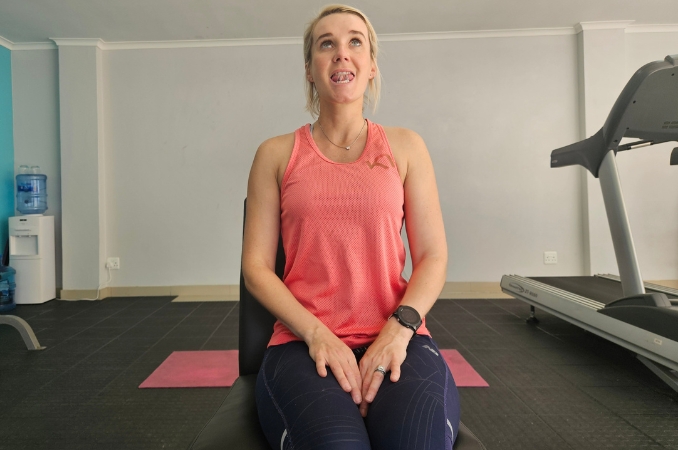
2. Tongue Stretch
For this exercises to stop snoring, start by sitting comfortably. Open your mouth and stick out your tongue as far as possible. Attempt to reach your chin with the tip of your tongue and gaze at the ceiling, keeping the rest of your face relaxed. Hold this position for 10 to 15 seconds, feeling the stretch along the underside of your tongue.
Slowly retract your tongue and relax for a few seconds. Repeat the exercise 5 - 10 times to effectively strengthen the tongue muscles, which can help reduce snoring.
Start your morning with a tongue stretch exercise, extending your tongue out as far as it feels comfortable to strengthen the muscles and reduce snoring.
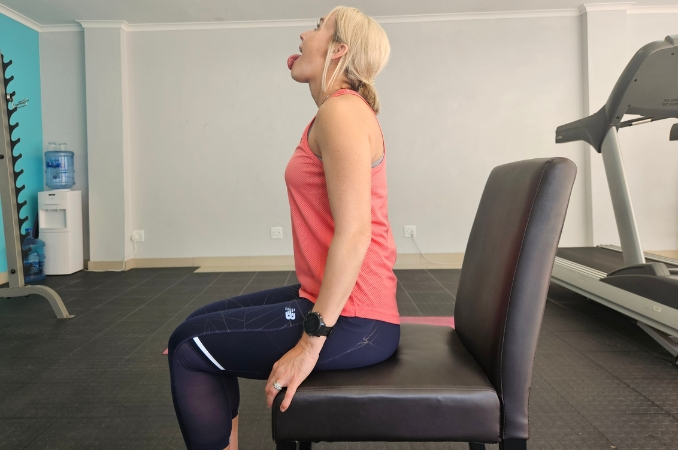

3. Tongue Push Ups
Start in a relaxed position, with your mouth closed and teeth slightly apart. Push the entire surface of your tongue firmly against the roof of your mouth. Maintain this pressure for 5 to 10 seconds, focusing on engaging the muscles in your tongue and throat. Relax your tongue and take a brief rest.
Perform this exercise 5 to 20 times daily to enhance the muscle tone in your tongue and upper airway, which can be beneficial for individuals with sleep apnea.
To challenge, slowly lower your jaw while pressing your tongue firmly against the top of your mouth.
4. Tongue Push Downs
Place the tip of your tongue against your lower front teeth and press the back of your tongue flat against the floor of your mouth. Hold this position for 10 seconds. Repeat 5 to 20 times.
Face Exercises
Facial muscle exercises can help prevent snoring and can be performed multiple times a day.
1. Cheek Puff
Use your facial muscles to puff your cheek outward to one side, then pull your cheek back inward. Repeat 10 times on each side.
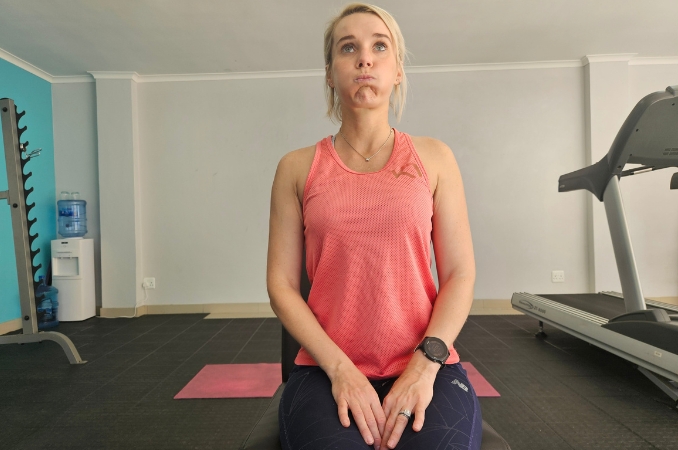
2. Cheek Hook
Use a hooked finger to pull your cheek outward lightly, and then use your facial muscles to pull your cheek back inward. Repeat 10 times on each side.
This can assist in the closure of the mouth while breathing.
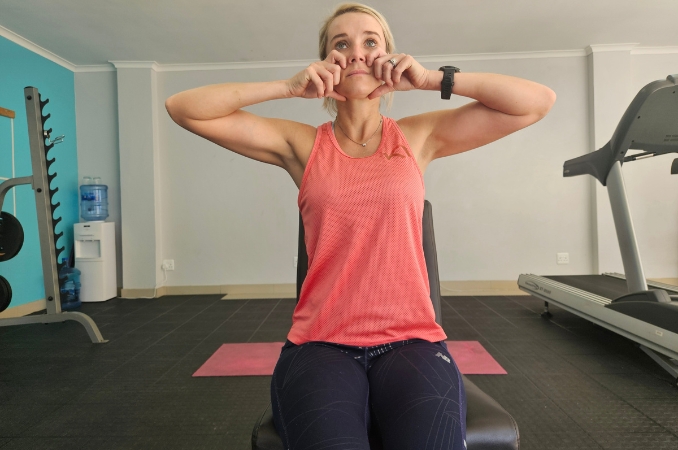


Jaw Exercises
The position of the jaw plays a crucial role in snoring. If the jaw is not properly aligned, it can cause the tongue to fall back and obstruct the airway. By exercising the jaw muscles, you can improve its alignment and reduce the likelihood of snoring.
Here are some exercises to target the jaw:
1. Jaw Stretch
Sit upright in a chair with your back straight and shoulders relaxed. Let your jaw hang loosely and your mouth slightly open. Slowly open your mouth as wide as you can without causing pain. You should feel a gentle stretch in your jaw muscles. Repeat 10 times
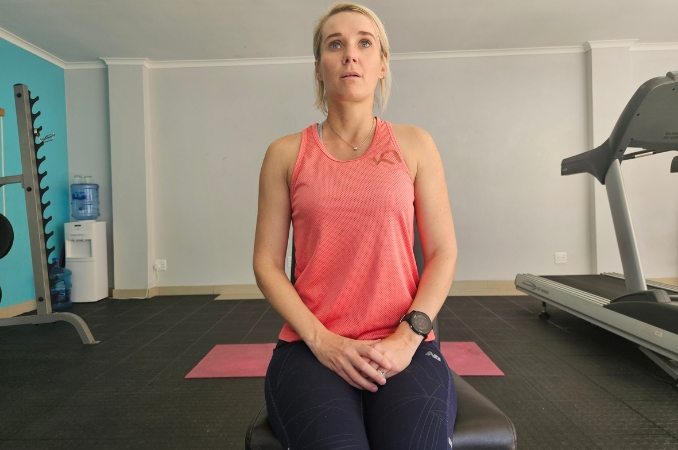

2. Jaw Slides
Open your mouth wide and slide your lower jaw as far to the right as possible. Hold this position for a few seconds before sliding your jaw to the left. Complete this exercise 10-15 times, ensuring each repetition is executed with smoothness and control.
3. Jaw Tension Release
Put your thumb on your chin and press lightly. Then, slowly open your mouth, pushing against your thumb's pressure. Hold this tension for a few seconds before relaxing. Repeat this exercise 10-15 times, gradually increasing the pressure applied by your thumb.
4. Jaw Rotations
Close your mouth and slowly rotate your jaw in a circular motion, first clockwise and then counterclockwise. Perform 10-15 rotations in each direction, focusing on maintaining a relaxed and controlled movement.
Singing Exercises

Singing uses many muscles in the mouth, throat, and diaphragm and involves making various sounds, including vowels. Early research from the National Library of Medicine shows that focused singing practice might help reduce snoring.
It also suggests that when singing, you should focus on repeating and strongly pronouncing individual sounds instead of just singing regular lyrics.
Singing exercises can be an enjoyable and effective way to strengthen the muscles in the throat and improve airflow, reducing the likelihood of snoring.
Here are some singing exercises to stop snoring that you can try:
1. Humming
Sit or stand upright and take a deep breath. Slowly exhale while making a humming sound. Continue humming for as long as you comfortably can, focusing on maintaining a steady airflow.
2. Tongue Trills
For this exercises to stop snoring, relax your tongue and let it rest against the roof of your mouth. Exhale slowly and make a rolling sound with your tongue. Continue tongue trills for as long as you comfortably can, focusing on the vibration and control of your tongue.
3. Vocal Warm-Up
Perform vocal warm-up exercises such as scales and arpeggios to engage the muscles in your throat and improve their flexibility. This can be done in several ways:
- Start with lower pitches and gradually work your way up to higher pitches, ensuring proper breath control and resonance.
- Pronounce the "Ah" sounds, holding it for a few seconds.
- Intermittently pronouncing the "Ah" note.
- Or saying "Arc, Unk" repeatedly.
Do this vocal warm-up 20 times.
Yoga and Breathing Exercises
Yoga and breathing exercises can help improve your lung capacity, strengthen the muscles involved in breathing, and promote relaxation. By enhancing your breathing techniques and reducing stress, you can reduce the likelihood of snoring.
Here are some yoga and breathing exercises to stop snoring to try:
1. Nadi Shodhana (Alternate Nostril Breathing)
Sit in a comfortable position and close your eyes. Place your pointer finger in between your eyebrows while placing your thumb finger at the right side of your nose as you inhale.
Release your thumb finger as you cover the left side of your nose with your middle finger as you exhale. Repeat the sequence of movement with 5 repetitions.
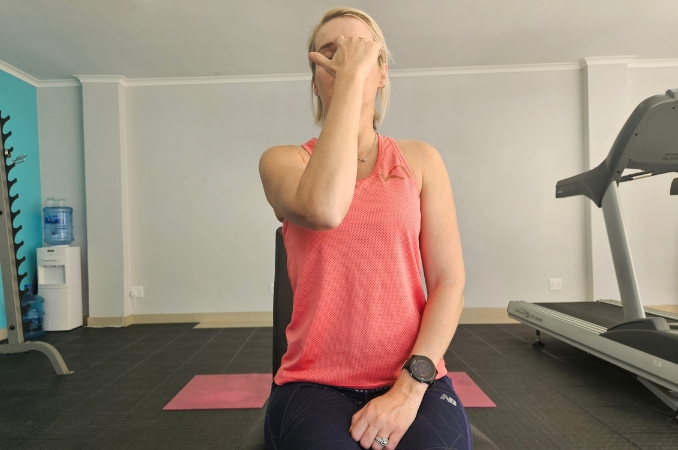
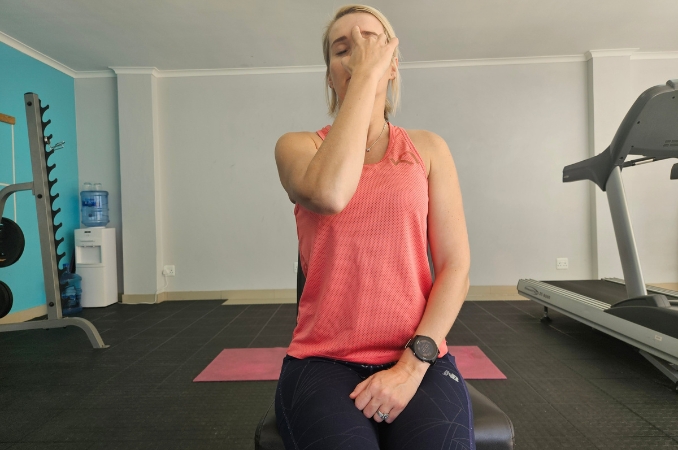
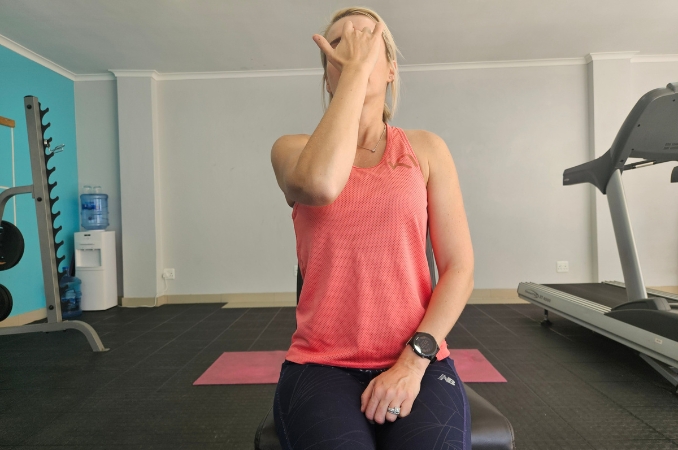
2. Lion's Breath
Sit or stand upright and take a deep breath in. Breathe out strongly from your mouth, sticking out your tongue and making a "ha" sound. Repeat this lion's breath exercise 10-15 times, focusing on the forcefulness of the exhale and the relaxation of facial muscles.
3. Bridge Pose
Lie on your back with your knees bent and your feet flat on the floor, relaxing your upper body. Place your hands at your sides. Engage your core, then push from your heels to lift your hips. Hold this position for several deep belly breaths, in through your nose and out through your mouth. Relax and return to the starting position.
Cardiovascular Exercises
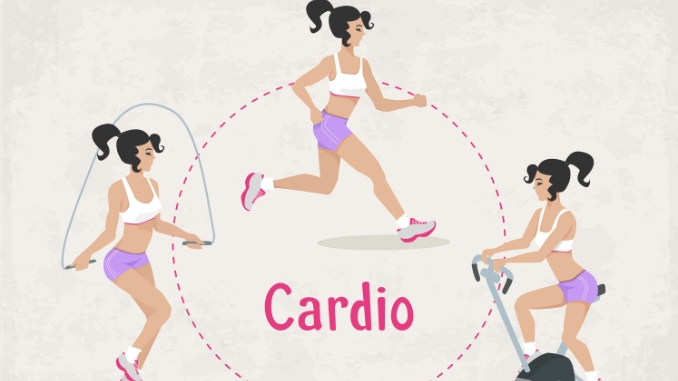
Regular cardiovascular exercise is good for your overall health and can also help decrease snoring. Cardiovascular exercises improve lung function, promote weight loss, and increase oxygen intake, all of which can reduce snoring.
Here are some cardiovascular exercises to stop snoring:
1. Brisk Walking or Jogging
Begin with a brisk walk or a light jog for 20-30 minutes, and slowly increase both the intensity and length over time. Aim to keep a consistent pace and breathe deeply while exercising.
2. Cycling

Cycling, whether on a stationary bike or outside, is a great form of cardiovascular exercise. Start with a comfortable resistance or gear and gradually increase the intensity and duration of your cycling sessions.
3. Swimming
Swimming is a gentle exercise that works out your entire body. Try different strokes and intensities to engage different muscle groups and increase your cardiovascular endurance
Conclusion: Incorporating Exercise into Your Routine for Better Sleep
A study in Oxford Academic by Sowho et al. shows snoring as major noise pollution [³] affecting the sleep and health of those nearby. By understanding snoring's causes and doing specific exercises, you can reduce it, breathe better, and sleep well.
If you’ve been searching for a safe, effective, fast and all-natural way to heal your sleep disorder, then you will love our breakthrough program that promotes deep, restful sleep in as little as 14 short days… or less. Check out this 14-Day Sleep Improvement Quick Start Program now!







